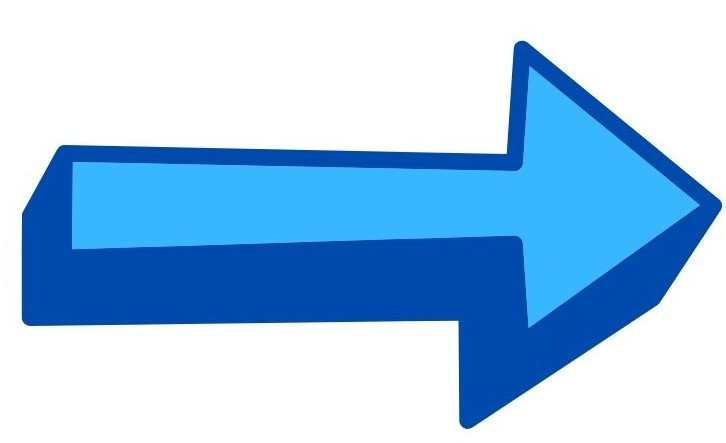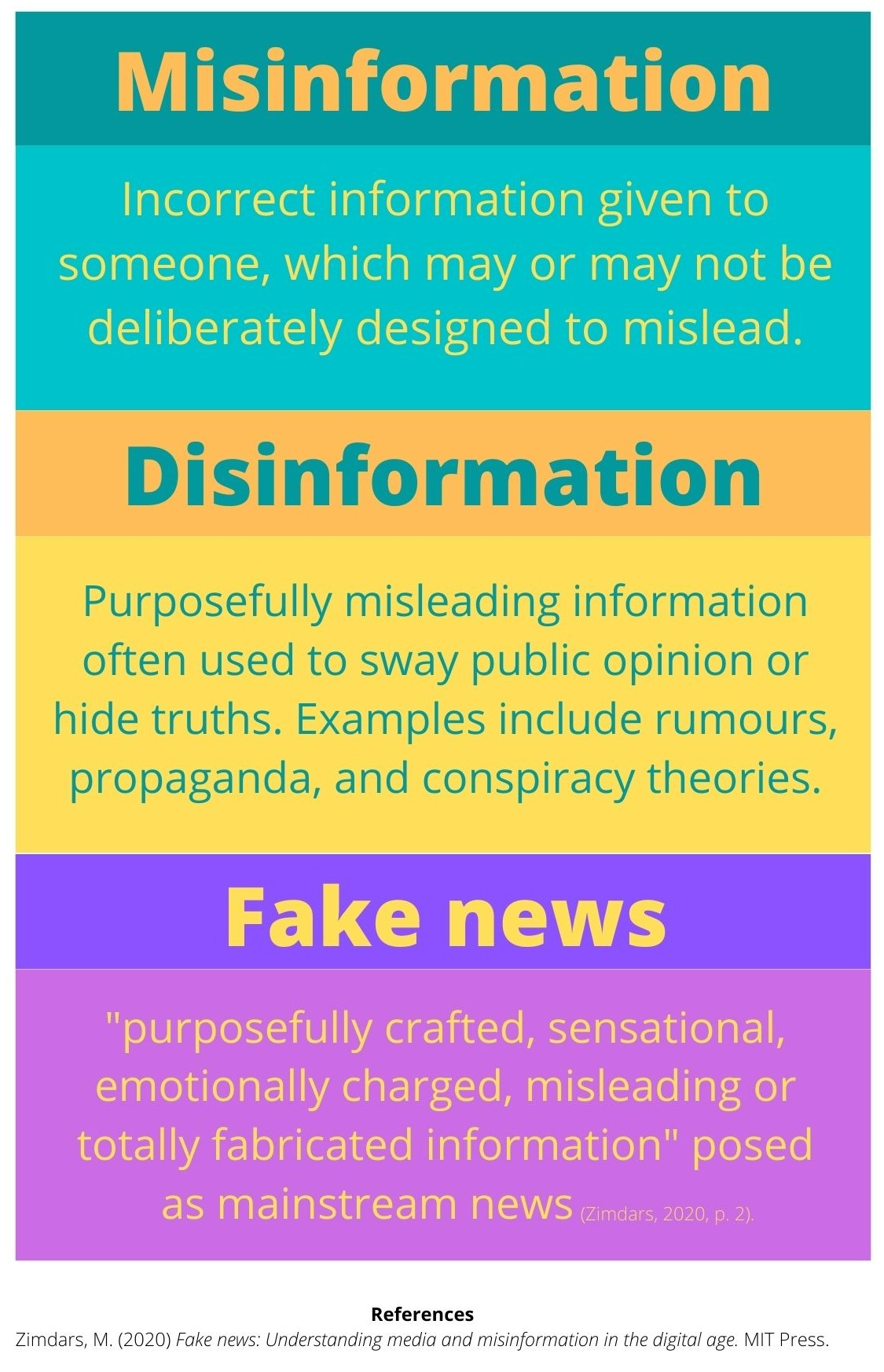

Critical evaluation of sources
It is very easy to find information thanks to the convenience of the Internet. However, it can be difficult to know which source or which piece of information is reliable.
A reliable source:
 is published by an expert in their field
is published by an expert in their field
 presents information that has been researched and shows evidence of that research
presents information that has been researched and shows evidence of that research
 has research that has been checked by another expert, or has gone through an editorial process
has research that has been checked by another expert, or has gone through an editorial process
 is objective. Its aim is to inform without any bias
is objective. Its aim is to inform without any bias
 is up-to-date
is up-to-date
Use the quick links below to learn how to recognise what a suitable source is for academic study.
What is an academic source?
For many Wintec courses you will be expected to find information from sources that are academic. These are also called scholarly sources.
In general, academic sources refer to peer-reviewed articles and books. They are reliable sources.
If you're not sure, a quick way to tell if a source is academic is if it has a bibliography (a list of sources that the author has used in their research).
Peer-reviewed articles are articles published in academic journals and that have been checked by other experts in that field. They are critically evaluated for the quality and accuracy of their research.
The pyramid below demonstrates the amount of the different types of sources you should use, with the least reliable or least academic at the top.
Depending on your assignment and field of study, you should be relying on peer-reviewed articles and academic books to inform your research. Use online sources sparingly (to plug any information gaps you find after you've searched for academic sources).

What's the issue with using websites and other online sources?
Anybody can create a website and upload information to the Internet. It can be very difficult to know if that person is an expert in their field and if you can trust their information.
But there is a way you can evaluate a website to see if it's a good source - The CRAAP test. Read on to find out how to critically assess websites.
Te Whatu Aho Rau Information Evaluation Framework
Te Whatu Aho Rau Information Evaluation Framework for assessing resources is a te ao Māori-inspired information strategy. It involves four interconnected concepts, which are all underpined by mana:
1. Pūtaketanga (origin)
2. Aronga (lens, perspective, purpose)
3. Tātai hononga (connections)
4. Māramatanga (understanding)
Learn more about each concept:
Important: "This framework should not be used to evaluate Māori taonga and artefacts - that is a discussion which can only take place within the cultural frameworks of Mātauranga Māori" (Feekery & Tawhai, 2024, p. 5).
Read the full framework.
Feekery, A., & Tawhai, R. (2024). Te Whatu Aho Rau: He anga arotake: An information evalution framework. Dr. Angela Feekery. https://sites.google.com/view/angela-feekery/te-whatu-aho-rau-he-anga-arotake
Critical evaluation: The CRAAP Test
The CRAAP Test is a system of checking if a source is reliable. It asks you a set of questions:

For a more comprehensive set of questions, click here.
The video and the interactive tutorial below will teach you more about how you can use The CRAAP Test to determine if online sources are reliable.
 Currency
Currency
How up to date is the information?
 Relevance
Relevance
Does the information relate to your topic?
 Authority
Authority
Who generated/published the information?
 Accuracy
Accuracy
Is the information reliable, truthful, and correct?
 Purpose
Purpose
Why does the information exist?
Fake news, misinformation and disinformation
It can be hard to navigate the large amounts of information thrown at us daily. Some of it is true and factual. Some of it isn't.
Untruthful information falls into camps: things that are deliberately designed to mislead you, and the stuff that is well-intentioned, but poorly researched or based on assumptions rather than fact. So, what is the difference between misinformation, disinformation, and fake news?

Why do we tend to fall for misinformation, disinformation and fake news?
This video explains why our brains are susceptible to accepting information without being critical about it.
Above The Noise. (2017, May 4). Why do our brains love fake news [Video]. YouTube. https://www.youtube.com/watch?v=dNmwvntMF5A
How can we avoid being fooled by wrong information?
The best thing you can do is fact check:
 Use The CRAAP Test to help you determine if information is reliable
Use The CRAAP Test to help you determine if information is reliable
 Cross reference the facts being presented with other reliable sources. Do they all say the same thing/are they presenting the same facts? If your reliable sources agree with your original source, then it should be safe to use the information.
Cross reference the facts being presented with other reliable sources. Do they all say the same thing/are they presenting the same facts? If your reliable sources agree with your original source, then it should be safe to use the information.
 Did you get the information from a source that is known to be factual? Social media, for example, is known to be full of misleading information.
Did you get the information from a source that is known to be factual? Social media, for example, is known to be full of misleading information.
 Would the information source be considered academic? Academic sources are a great place to gather information, even if what you're researching is not for your studies. Remember, academic sources are considered to be reliable because the authors are experts in their field and their work has gone through an editorial or peer-review process.
Would the information source be considered academic? Academic sources are a great place to gather information, even if what you're researching is not for your studies. Remember, academic sources are considered to be reliable because the authors are experts in their field and their work has gone through an editorial or peer-review process.
More great stuff on fake news and misinformation
This podcast from Jonathan Van Ness' Getting Curious explores the phenomenon of fake news and misinformation and why we are so susceptible to falling for it and spreading it. Click on the image to listen.
Van Ness, J. (Host). (2022, February 9). Why do we fall for fake news? with Dr. Nadia Brasher [Audio podcast episode]. In Getting curious with Jonathan Van Ness. Jonathan Van Ness. https://jonathanvanness.com/podcast/why-do-we-fall-for-fake-news-with-dr-nadia-brashier/